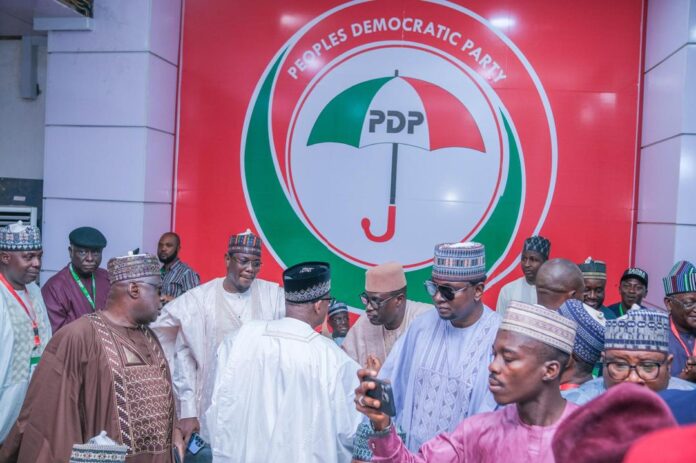By: Michael Longji
As Nigeria inches closer to the 2027 general elections, fresh tension is brewing within the ranks of the Peoples Democratic Party (PDP) over the contentious issue of presidential zoning to the South. High-profile party members, including Oyo State Governor Seyi Makinde and former Rivers State Governor Nyesom Wike, have reportedly expressed interest in clinching the party’s presidential ticket.
The once-united G-5 bloc, which had previously stood as a formidable coalition within PDP, now finds itself scattered and divided. Party insiders suggest deep ideological differences and competing ambitions have fractured the group, potentially weakening its influence in national decision-making ahead of the primaries.
In a twist that has sparked reactions across political circles, some observers speculate that a divided PDP vote could inadvertently benefit incumbent President Bola Tinubu. “Let the PDP split the ballot it only makes things easier for Uncle Tinubu,” one senior party strategist remarked under anonymity.
Meanwhile, elder statesman Chief Bode George, widely regarded as one of the founding fathers of the PDP, continues to play a symbolic role in guiding the party’s southern strategy. Critics have described him as the “grandpa of the PDP,” a title he appears to wear with pride, given his years of influence within Lagos politics.
The Lagos State chapter of the PDP has emerged as a vocal advocate for zoning the presidency to the South, highlighting the need for balanced representation. However, questions remain about whether PDP leaders particularly in the South-West have the electoral muscle to deliver polling units and rally support come 2027.
Political analysts warn that the party’s chances could be significantly impacted if unity isn’t restored ahead of primaries. With growing calls for transparency and inclusiveness, all eyes are now on the PDP National Executive Committee as it navigates these turbulent political waters.







